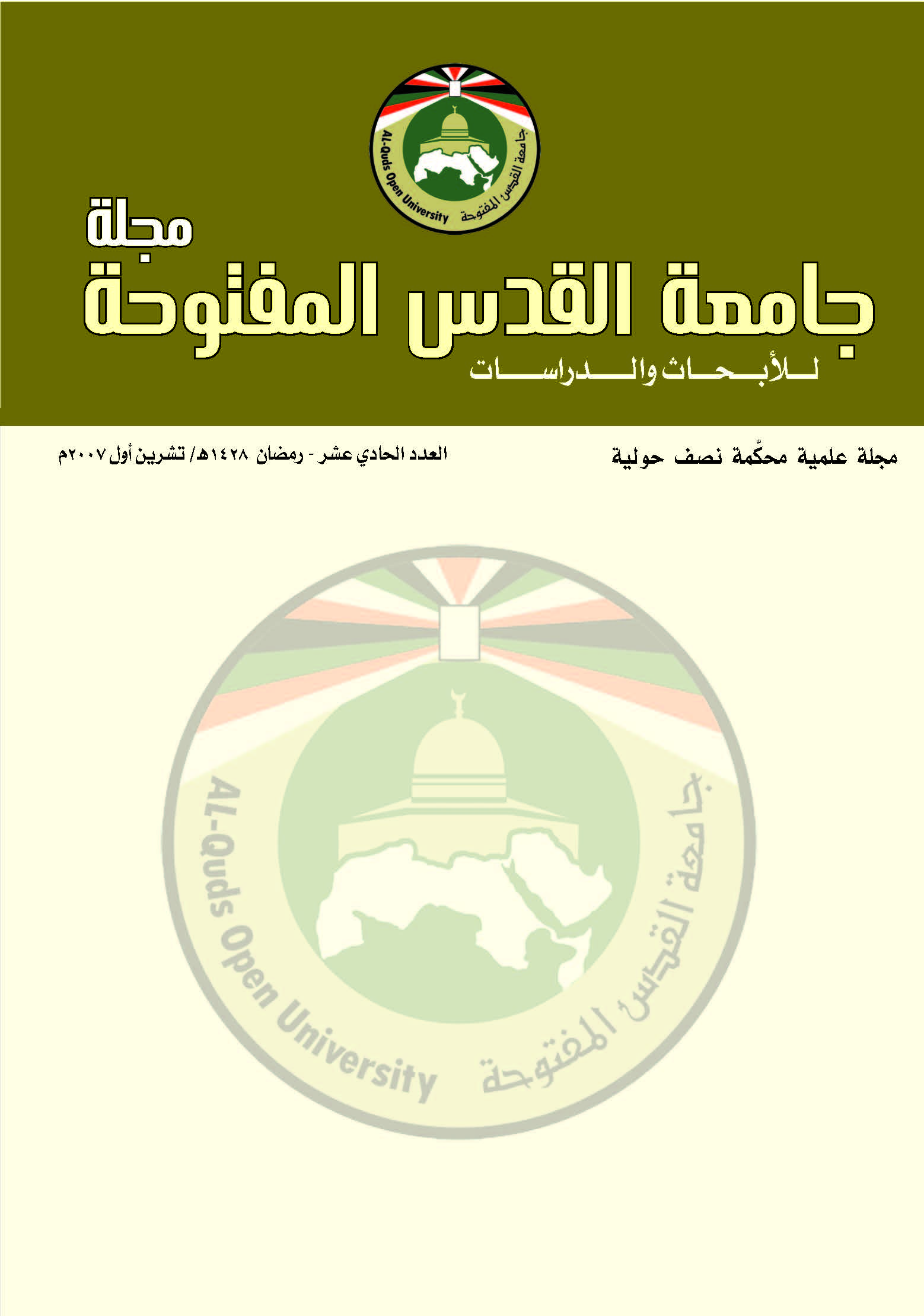A Proposed Curriculum Plan for Teaching Astronomy and Space Science at Palestinian Schools and Universities
Keywords:
A Proposed Curriculum, Astronomy, Space Science, Palestinian Schools and UniversitiesAbstract
Astronomy and space sciences are attractive and interesting fields to
the majority of people especially the young students. Astronomy and space
sciences can be mind broadening experience, they can convey scientific
knowledge in a way that can be attractive to basic school level students,
once students have understood the importance of science they might be
more easily pursued to continue their education in technology and science.
In this paper we suggest a curriculum for astronomy and space science for
different levels:
1. Ages 3-9. At this stage, the curriculum encouraged the teachers to point
out the existence of some astronomical and space science phenomena.
2. Ages 10-16. Ages six to fifteen are ideal for teaching astronomy and space
sciences because students are interested to learn. The curricula outline
many astronomical and space sciences phenomena.
3. Ages 17-18. At this level, students should be able to read a newspaper
article on astronomy and space science and be able to understand its
importance.
4. University level (freshman). The curricula offers general course outline
on astronomy and space science, to increase the awareness on scientific
knowledge and to train the future teachers.
Finally we address the role of popularization of science; we find that it
can be a useful tool for non-formal astronomical education.
Downloads
Published
How to Cite
Issue
Section
License
- The editorial board confirms its commitment to the intellectual property rights
- Researchers also have to commit to the intellectual property rights.
- The research copyrights and publication are owned by the Journal once the researcher is notified about the approval of the paper. The scientific materials published or approved for publishing in the Journal should not be republished unless a written acknowledgment is obtained by the Deanship of Scientific Research.
- Research papers should not be published or republished unless a written acknowledgement is obtained from the Deanship of Scientific Research.
- The researcher has the right to accredit the research to himself, and to place his name on all the copies, editions and volumes published.
- The author has the right to request the accreditation of the published papers to himself.













_2.png)
_.png)
_2.png)
_1.png)
_.png)

